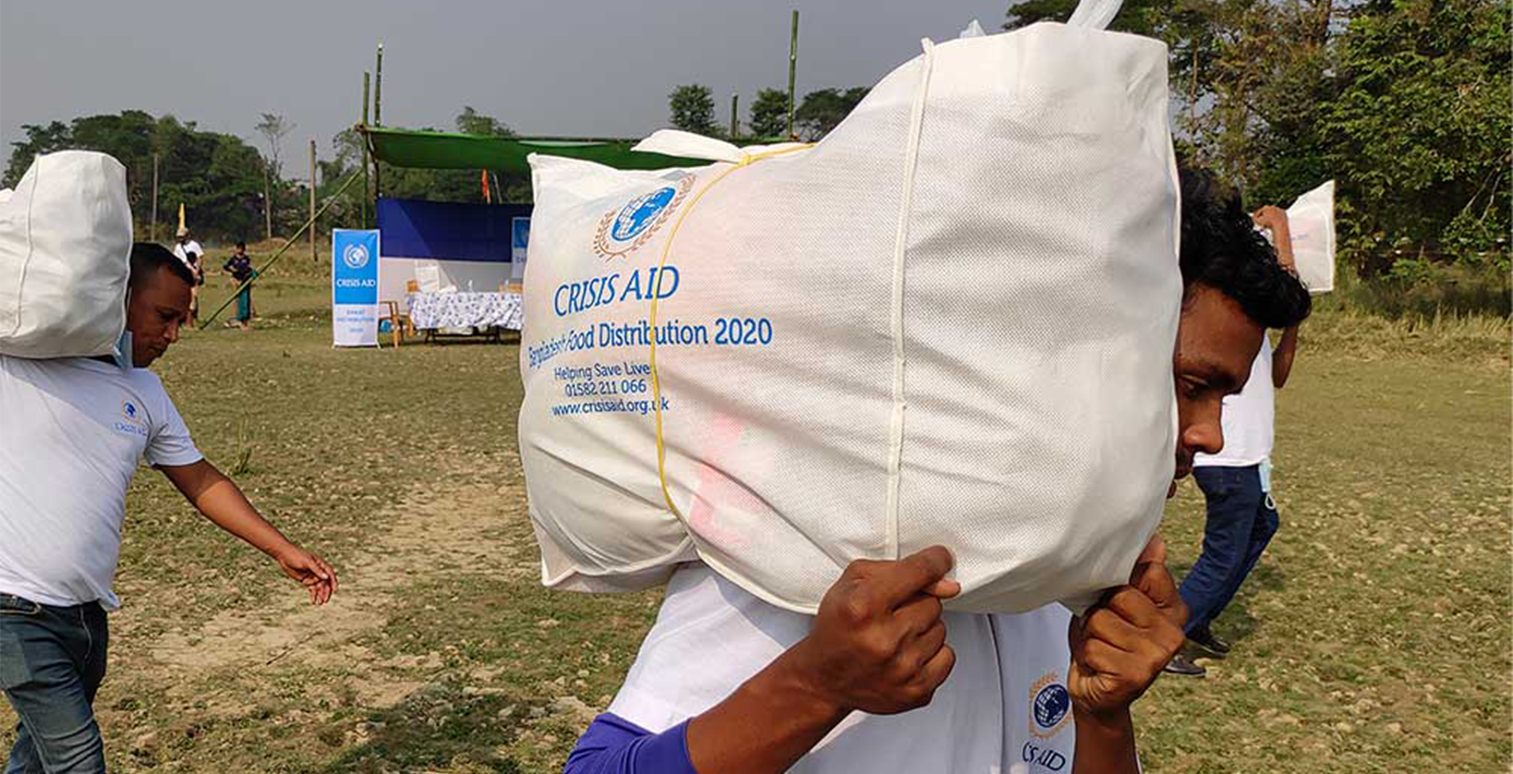Addressing the Climate and Refugee Crisis in Bangladesh

Bangladesh, a country steeped in rich cultural heritage and natural beauty, faces an ongoing battle against the severe impacts of climate change and the humanitarian crisis resulting from the influx of over a million Rohingya refugees. This dual challenge has placed an immense strain on the nation’s resources, pushing its people and infrastructure to the brink. Crisis Aid stands committed to alleviating the plight of those affected, reinforcing the belief that victory and sustenance emerge through supporting the underprivileged, as echoed in the teachings of Bukhari.
The Climate Change Vulnerability of Bangladesh
Bangladesh’s geographical positioning makes it one of the most climate-vulnerable nations globally. Encompassing the world’s largest delta and crisscrossed by 700 rivers, the country’s landscape is both its boon and bane. The recent escalation in natural calamities, including floods and cyclones, has not only devastated homes and livelihoods but also underscored the nation’s acute vulnerability to environmental changes. The increasing intensity and frequency of these events have led to widespread displacement, exacerbating the already dire situation in one of the world’s most densely populated countries.
The Rising Sea Levels and Urban Displacement
The phenomenon of rising sea levels presents a stark reality for many rural communities in Bangladesh. Entire villages have been engulfed by the advancing waters, displacing families and compelling them to seek refuge in the overcrowded slums of cities like Dhaka. The monsoon season exacerbates these challenges, with up to one million people fleeing their inundated homes, most of whom are women and children. These displaced individuals find themselves in precarious living conditions, lacking access to essential resources such as food and clean water. Crisis Aid responds to this urgent need by providing food parcels that sustain a family for a month, with a donation of just £20 making a significant difference.
The Water Crisis amidst Flooding
Paradoxically, despite the prevalence of flooding, clean drinking water remains scarce. The populace is often forced to rely on contaminated sources, leading to widespread health issues and fatalities. Recognising this critical need, Crisis Aid has initiated projects to install water pumps in remote communities, ensuring access to safe drinking water and mitigating the risk of waterborne diseases.
The Rohingya Refugee Crisis
The plight of the Rohingya, one of the most persecuted minorities worldwide, has added a complex layer to Bangladesh’s existing challenges. Fleeing atrocities in Myanmar, these refugees find themselves in squalid camps in Cox’s Bazar, struggling to survive in conditions that lack basic sanitation and are prone to flooding and landslides during the monsoon season. The risk of diseases such as cholera and dysentery is high, and the scarcity of food and water further compounds their suffering. While the Bangladeshi community initially extended support to the Rohingya, offering shelter and sustenance, the continuous influx of refugees has strained the nation’s capacity to provide adequate aid.
Crisis Aid’s Role and Call to Action
Crisis Aid is actively engaged on the ground, delivering emergency aid to those impacted by both the environmental and refugee crises. However, the scale of these challenges necessitates continued support from the global community. By donating to Crisis Aid, you can directly contribute to the provision of food, clean water, and shelter to those in desperate need.
The testimonies of Crisis Aid volunteers provide a window into the harrowing conditions faced by the refugees in Bangladesh, highlighting the urgency of the situation. Your support can light a beacon of hope for those engulfed in these crises, offering them a chance at a safer, healthier future.
In closing, the ongoing crisis in Bangladesh calls for a unified response from the international community. It is not only a test of our collective humanity but also an opportunity to demonstrate our commitment to aiding those in the most vulnerable situations. Together, we can make a difference in the lives of millions, embodying the spirit of compassion and solidarity that defines our shared humanity. Please, lend your support to Crisis Aid’s efforts in Bangladesh today and help us to continue our crucial work in these challenging times.